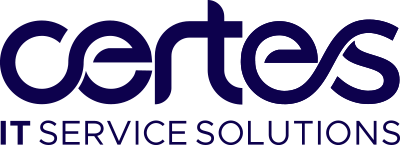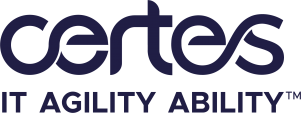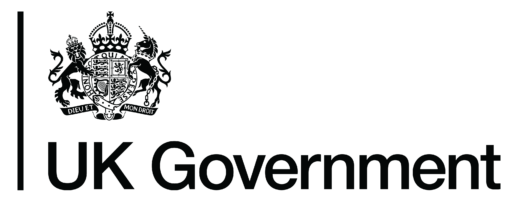
Embracing AI in Education: “The Biggest Risk is Doing Nothing”
In June 2025, Ofsted released a new study titled “The biggest risk is doing nothing”: insights from early adopters of artificial intelligence in schools and further education colleges. It examines how 21 schools, colleges, and multi-academy trusts across England are integrating AI into education, and why thoughtful action matters more than delay.
Why AI in Education Is Gaining Ground
Reducing workload: Many early-adopter providers use AI to streamline tasks like lesson planning, resource creation, assessment support, and parent communications, saving time and enabling staff to focus on teaching.
Empowering “AI champions”: Almost every setting had a staff member leading the charge, an AI-savvy colleague who supports others, builds enthusiasm, and helps translate potential into practice.
Ethical governance and confidence: Leaders highlighted data protection, bias mitigation, safeguarding, and intellectual property policies as foundational to responsible AI deployment.
Key Challenges to Address
Limited evidence on learning outcomes: Current AI use is largely exploratory and short-term, with little robust data on its direct impact on student results or long-term attainment.
Lack of strategic integration: Many providers are still working on coherent strategies, especially how AI could support curriculum delivery, assessment, or staff development.
Technical and equity barriers: Rapid development, absence of tailored school tools, and disparities in access risk widening the digital divide if not carefully managed.
Ofsted’s Position on AI in Education and Inspection Approach
No direct AI inspections: Inspectors will not evaluate AI tools per se but will assess how AI use affects teaching quality, learner experience, safeguarding, and outcomes.
Not expected to use AI: Schools are under no obligation to adopt AI, but Ofsted anticipates that some students or staff may already be using it, for example at home, and expects leaders to manage that usage proactively.
Guidance and inspection training: Ofsted plans to train inspectors this summer to spot evidence of AI’s impact and how leadership mitigates risks through policy, monitoring, and governance frameworks.
What Early Adopters Are Doing Differently
Early adopters followed a gradual approach:
-
Appointing an internal AI champion to pilot tools and champion awareness
-
Running CPD and training to boost staff confidence and digital literacy
-
Starting with targeted use cases, such as curriculum support, before scaling more broadly
-
Embedding AI policies that address safeguarding, bias, IP, and data protection
-
Tracking qualitative effects on time saved, staff well-being, and classroom flexibility, even when outcome data is still emerging
Why Certes Clients Should Care About AI in Education
At Certes, we support IT leaders and education technology professionals across the UK. If you're involved in education or school transformation projects, here’s how these findings could be relevant:
Strategic talent needs: AI rollout calls for roles like AI champion, digital learning lead, or EdTech policy manager. Recruiters are actively searching for candidates who blend technical literacy with education insight.
Policy and governance expertise: Schools are developing AI Education frameworks, and professionals with skills in data governance, risk assessment, and digital ethics are highly sought.
Professional development specialists: Training educators to adopt AI effectively needs instructional designers and trainers with digital confidence and practical experience in educational settings.
Change management leaders: Transitioning to AI-supported workflows demands thoughtful leadership, project managers and transformation leads who can guide pilots, evaluate impact, and scale responsibly.
Final Takeaway
Ofsted’s research, and its message that “the biggest risk is doing nothing”, underlines both the opportunity and urgency of engaging with AI thoughtfully. As schools and FE colleges begin pilot programmes, clear strategy, ethical safeguards, and supportive leadership are essential to harness AI’s benefits while protecting learners.
For Certes clients, this represents demand for professionals who can bridge the technical, pedagogical, and governance elements of AI in education, helping schools and colleges move from cautious experimentation to structured innovation.
Next Steps for Education Leaders
-
Identify your internal AI champions to lead workshops, pilots, and knowledge-sharing
-
Conduct staff training on AI literacy, classroom use, data ethics, and tool evaluation
-
Create or update governance policies addressing risk mitigation, safeguarding, bias, and IP
-
Pilot AI use in measured, outcome-focused ways, and document its effects
-
Plan for longer-term strategy, including curriculum integration, impact tracking, and scaling
Certes IT Recruitment is ideally placed to support education providers seeking talent across all these areas, from policy experts and digital leads to learning technologists and transformation managers. If your organisation is embarking on its AI journey, we’d love to help you find the right people to make it successful.
Sources:
-
Ofsted report “The biggest risk is doing nothing” (Published 27 June 2025)
-
Analysis and press commentary from gov.uk, TES, Computing at School




















